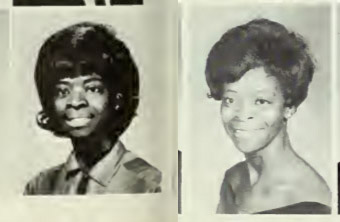“I’m in college, but I have no real interest in becoming gainfully employed after graduation,” said no one, ever.
Truthfully, if you haven’t been to the Career Services office since your enrollment at GS, your actions speak louder than the statement above. The office is not a scary place to be, it’s full of people who have been exactly where you are: confused about life, confused about which giphy to choose in a reply, Adam Martin and Jay Pollett are basically experts in both.
After spending time with Martin, Assistant Director of Career Development (a lifeline for contact to potential future employers) and Pollett, Assistant Director of Experiential Learning (an internship and co-op miracle worker) my palms were sweating with regret. I found myself wishing I had been there yesterday, or so many yesterdays ago, for my own selfish job-search related reasons and not to be conducting an interview for this article. But alas, here are some tips from the professionals at Georgia Southern on how to ready yourself for the brute reality of the world after graduation.
Resumes
The word “resume” itself seems to suggest that somehow, in someway, you’re falling short. Whether it be your experience, variety of skills, or even failing at how to appropraitely phrase the assets a company might be looking for, resumes are intimidating.
“Students have this perception that there’s one right or wrong way to do a resume,” said Martin. Instead, he insisted that just starting a resume is the hardest part.
The GS Career Services offices take it a step further than your average resume critique. An approved resume is your golden ticket. Once your resume has been approved (checked for errors and offered suggestions) by the Career Services office, they hold an online catalog of the resumes.
“If you have an interest in a specific industry, or in a specific company, we have staff members who are really at the students disposal,” said Pollett.
The Employer Relations team then reaches out to the companies in which students are showing interest.
“Even if you don’t do anything, as long as you’ve opted-in to the system, you resume will go out to these employers. It’s your resume doing work for you while you’re studying for classes, ideally, or going to a football game, or watching Netflix,” said Martin.
Woulda, Shoulda, Coulda
It’s never too early to start thinking ahead about your life after college.
“I think there’s still a misconception that a job or a career is something that happens when you’re a senior, or maybe if you’re a real go-getter, the last semester of your junior year,” said Martin.
The pros suggest that students get involved in student organizations and volunteer work, and begin exploring personal and professional interests. The logic is simple: the more connected you are in organizations, the more opportunities you’ll hear about in your field.
Pollett stresses the importance of having a conversation early on in the resume-building stages with the office staff about the experience you already have, in anything from babysitting to restaurant jobs.
“You’ve developed applicable skills in those positions,” Pollett explained.
Be sure to show a future employer your skills on your resume and don’t risk the chance of landing the interview to showcase those skills. Your resume may never make it to the interview pile if you haven’t verbalized key skills on paper.
December Graduates
For the seniors out there thinking it’s already too late for you, you’re all washed up, doomed to a life in your parents basement: listen up. Students walking the stage in December aren’t suffering any real disadvantage compared to students graduating in the spring.
Pollett explained that the amount of jobs and recruiters might feel smaller, because recruiters often target universities following the traditional academic calendar. Martin and Pollett both agree that the industry is the determining factor for fall graduates. Jobs in education, for example, are more likely to be offered in the spring. Sometimes it’s just a waiting game, but that doesn’t mean you should let anything discourage your drive to follow your passions and capitalize on that degree.
Too Long; Didn’t Read This Article
- Get involved in a student organization… NOW. If you’re not uncomfortable, if you’re not putting yourself out there- you’re doing your college years wrong.
- Do yourself a favor and jot down a list of any work experiences, and include your favorite Nicolas Cage movie (just trust me). Bring the list to the Career Services office and they will help you sound like a full-fledged master at life on your resume. Later, your friends will watch you sort through all the job offers in a jealous rage.







